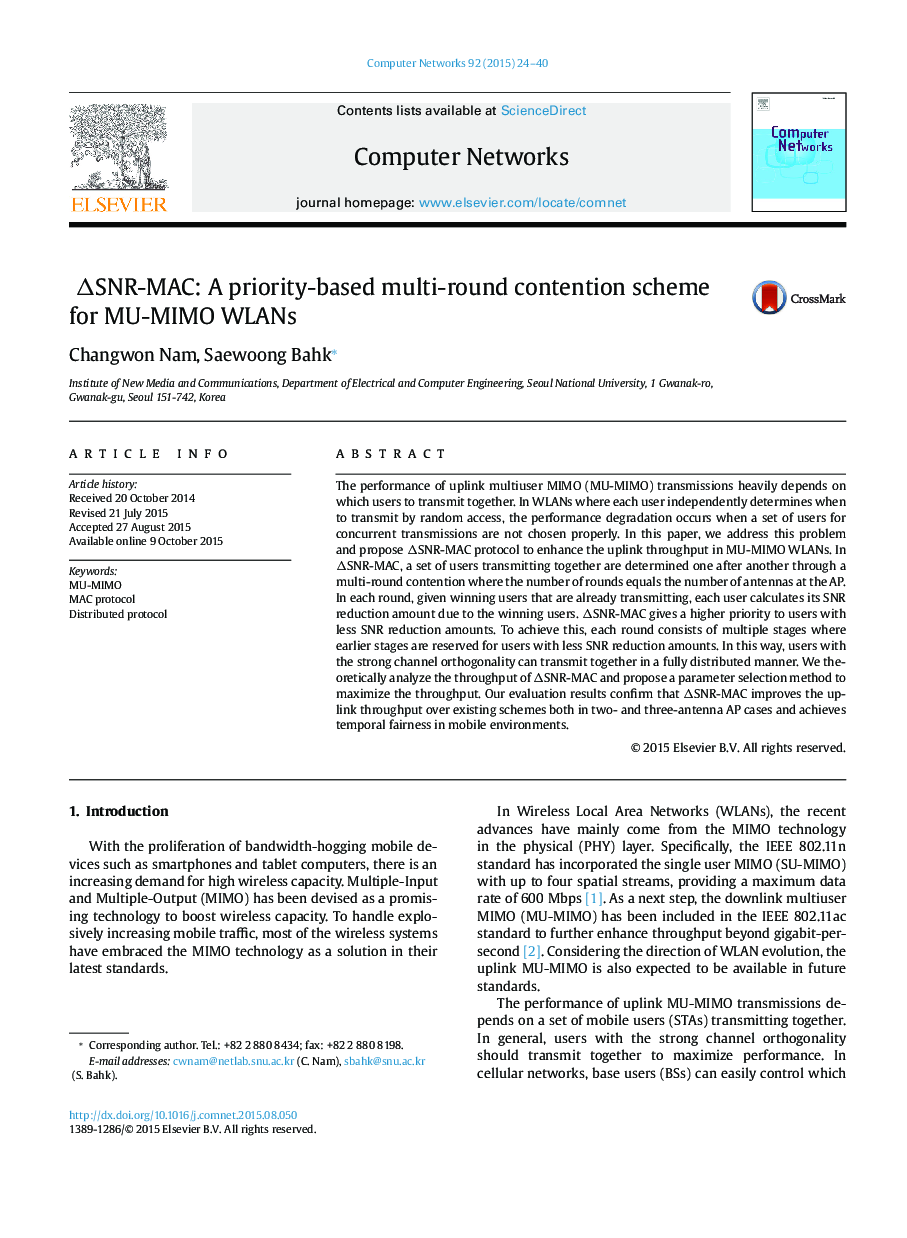| Article ID | Journal | Published Year | Pages | File Type |
|---|---|---|---|---|
| 451623 | Computer Networks | 2015 | 17 Pages |
The performance of uplink multiuser MIMO (MU-MIMO) transmissions heavily depends on which users to transmit together. In WLANs where each user independently determines when to transmit by random access, the performance degradation occurs when a set of users for concurrent transmissions are not chosen properly. In this paper, we address this problem and propose ΔSNR-MAC protocol to enhance the uplink throughput in MU-MIMO WLANs. In ΔSNR-MAC, a set of users transmitting together are determined one after another through a multi-round contention where the number of rounds equals the number of antennas at the AP. In each round, given winning users that are already transmitting, each user calculates its SNR reduction amount due to the winning users. ΔSNR-MAC gives a higher priority to users with less SNR reduction amounts. To achieve this, each round consists of multiple stages where earlier stages are reserved for users with less SNR reduction amounts. In this way, users with the strong channel orthogonality can transmit together in a fully distributed manner. We theoretically analyze the throughput of ΔSNR-MAC and propose a parameter selection method to maximize the throughput. Our evaluation results confirm that ΔSNR-MAC improves the uplink throughput over existing schemes both in two- and three-antenna AP cases and achieves temporal fairness in mobile environments.
